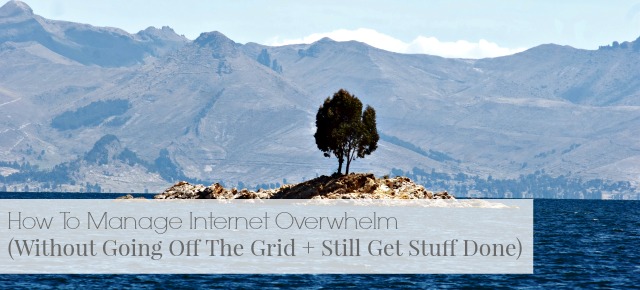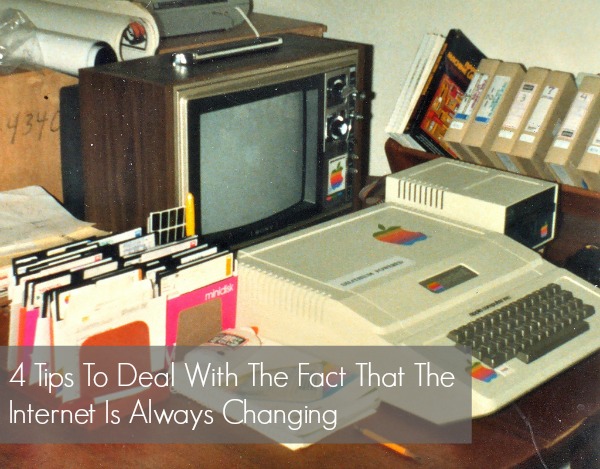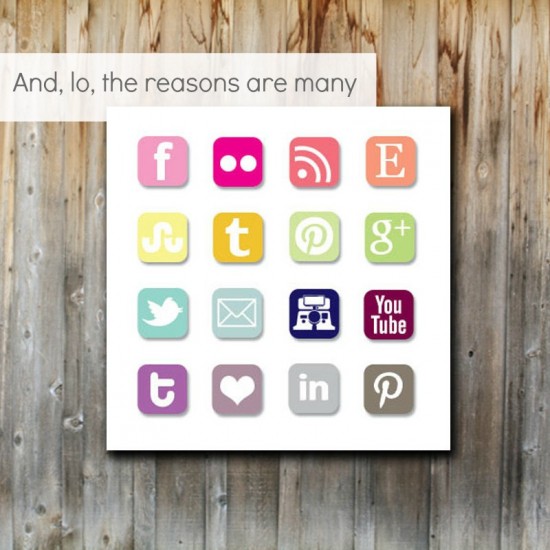
It happens to the best of us. Things are rolling along nicely - new clients! big meetings! money dripping into your account at a sweet and steady pace! And then allofasudden, nothing but the sound of wind down a long hallway and an owl in the distance. Whoooooo! Whooooo! Whoooooo are you going to live with when business dries up?
For the first few days, you treasure the empty inbox. You go to matinees, grab long lunches with friends, and catch up on your Netflix.
But after a few weeks, you start getting a little nervous. Nervous and twitchy and compulsively checking your bank account balance - as though seeing that number is going to help at all.
Dude. Worry not. All of us - every single self-employed human - has gone through dry spells. At the risk of being a total Pollyanna, let’s try to reframe this downtime as an opportunity to get some awesome stuff done.
Here are eight confidence-building, business-netting things you can (and should!) do when business is slow.
Update your permanent pages
Despite my years as a professional copywriter, I had the same About page for, oh, ever. And my old sales pages? Well, they’re gone now AND THAT IS NOT AN ACCIDENT. I regularly look through and update older, high traffic posts but it’s rare that I look at my own permanent pages - and I bet you’re the same. Seems a bit narcissist to read your own bio on the regs, right?
But other people are constantly reading your About page and Sales pages - my Yes and Yes About page has 50,000+ views! Here’s a 15-part tutorial to help you write better sales pages and here’s a post full of great ‘cheats’ to finish your About page.
Also - you know your About page should end with a call to action, right? Like, you (charmingly) ask them to follow you on social media and/or subscribe to your list? Yeah, I thought you already knew that.
Update and gather testimonials
In a perfect world, you’d have an automated system in place to help you gather testimonials a week or so after you’ve wrapped up with a client. I’m still working out the kinks in mine, but thus far it consists of an email that I schedule for two weeks after we’re finished with a link that takes them to a Google form. The form elicits all sorts of feedback and they let me know if I can use that feedback on my testimonial page.
Not sure what makes a good testimonial?
1. Data! How many more sales? How many more Twitter followers? How many dates? How much money or time saved? We want hard numbers, son.
2. Barriers to purchase that were overcome. “I always thought life coaches were for hippies, but then I hired Nancy.” “$1,500 seemed like a lot of money to invest in my engagement photos, but it was sooooo worth it.”
Contact previous clients and see if they need anything
It’s a million times easier to get repeat business than convert a new customer. Go have a good online stalk of all your previous clients and see if there’s anything you can help with. They’ve been tweeting about a big new project - do they need your help designing the website? She tweeted that they’re expecting a baby - do they need pregnancy photos? Send a sweet, personalized email reaching out and offering to help.
Optimize some of your older, high-traffic posts and re-promote them
Make the post images Pinterest-friendly! Make the posts more readable! Include links to other posts within this post! See if you can use them as guest posts on other sites!
Then re-promote these newly awesome-i-fied posts on your social media channels. Eassssy.
Pitch guest posts or offer yourself up for interviews
When I offered myself up for interviews, I got about 15 takers (!) over a month and a half. That means that heaps of new readers and potential clients heard and read all about me. Nice, right? You can do the same. Find podcasts that regularly feature people in your field and pitch yourself!
You’d also do well to bookmark sites that feature guest posters in your field. Some particularly great ones: Freelancers Union, Oh My Handmade, and Designsponge’s Biz Ladies column.
Create a different form of your offerings
Can you turn a one-on-one offering into a group offering? Could you turn an e-course into a live workshop? Could you repurpose an old, no-longer-selling-that-well ebook into a series of blog posts? Or guest posts? There are innumerable ways to reinvent your wheel.
Learn that thing you know you should be learning (but have been putting off)
Like, A/B split testing. Or Google Analytics. Or starting a newsletter. Or making videos. Or creating a series of autoresponders. You knooooow you should be doing these things (and by ‘you’ I also mean ‘me’). Let’s make a pact to finally figure them out. Ready? Go.
Schedule out a bunch of social media updates
I’m a huge fan of promoting other people’s work and I think it’s been a big part of my ‘online success,’ as counterintuitive as that may seem. I squirrel away great posts and links that I find all over the internet and then schedule out daily ‘Fave Read of The Day’ tweets. (Are we Twitter friends? We should be.) These pre-scheduled tweets send traffic to lovely people, entertain my Twitter friends, and help me connect with the people I’m promoting.
You can also pre schedule tweets that promote your products and services or link to older, now-optimized posts.
What do you do when business is slow? Leave your tips in the comments!
P.S. If you liked this and don’t want to miss future posts (and you want two free ebooks that’ll help your business), may I be so bold as to suggest that you sign up for my newsletter?
photo by scott robinson // cc































